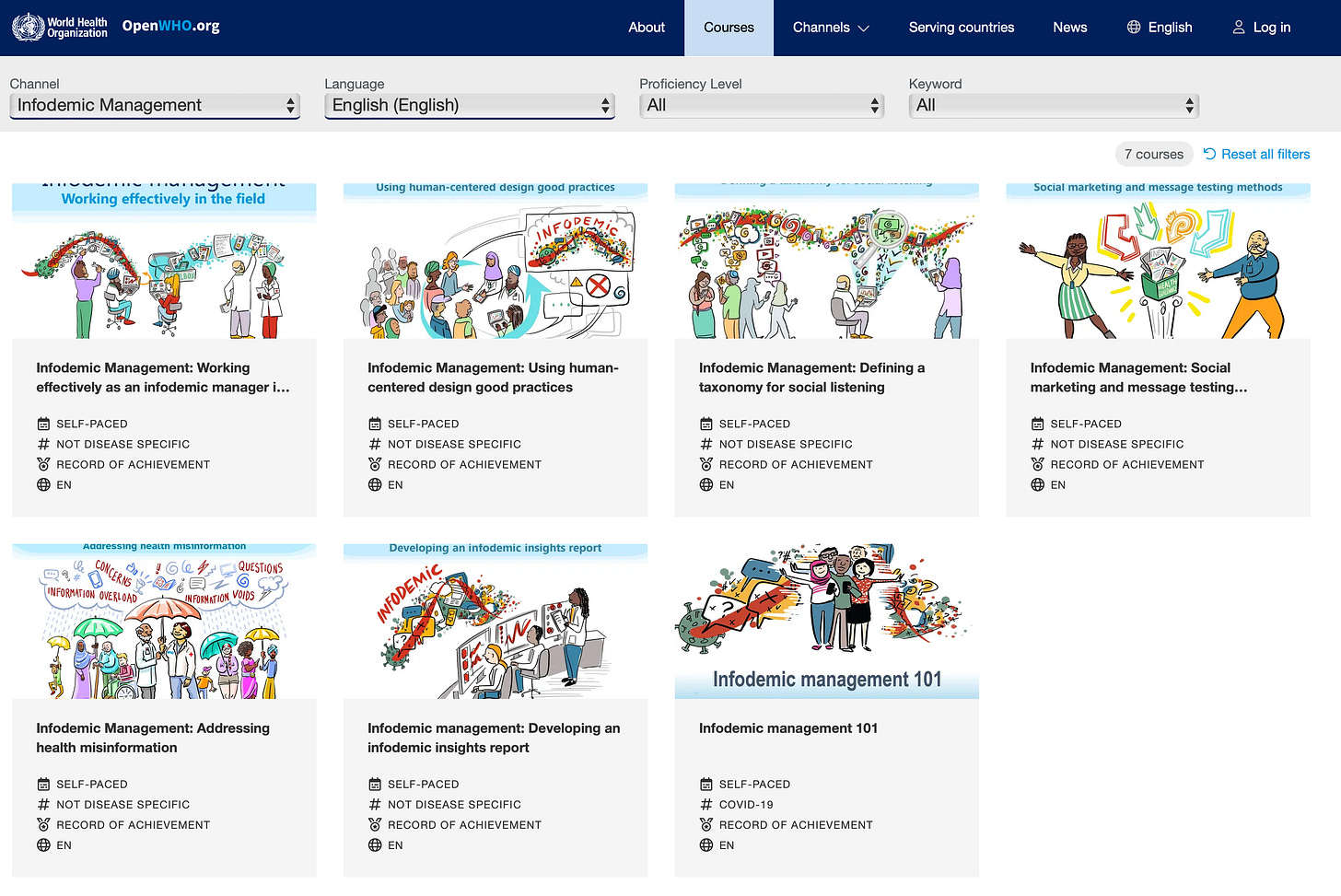ANNIE Connect this week: Infodemic, media literacy, and fact-checking
Consequences of false or misleading news about health can be tremendous. How can we, as news/media literacy educators, contribute to tackling the problem?
The term ‘infodemic’ gained prominence during the COVID-19 pandemic.
The expression, coined by the World Health Organization, refers to the overwhelming flood of information inundating our lives, which led to confusion, panic and even deaths. Just as a pandemic spreads through populations, so do misinformation, disinformation, and rumours, obscuring quality content and scientific facts.
How can we, as news and media literacy educators, equip our students and communities with the tools to navigate this complex landscape? How can we work with fact-checking organisations and people in the medical sector?
Four years ago, in 2020, the WHO convened its first ‘infodemic management’ conference (in which I was involved as one of the ‘topic masters’). Since then, I’ve been thinking about how educators and researchers can contribute to tackling the problem.
Naturally, student-driven fact-checking has been the staple of our operation at Annie Lab; we worked with many other fact-checking organizations globally through the “CoronavirusFacts Alliance” by the International Fact-Checking Network. We were also invited to become a member of WHO’s Vaccine Safety Net.
I am now in talks with the School of Public Health under the medical school at our university, and we have been brainstorming about possible collaborations in the area of Infodemic Management.
The WHO has produced many materials that we educators can adopt and adapt in this field, such as free online courses, operational toolkits, competency frameworks, and guidebooks.
ANNIE Connect on March 15
So, to discuss and develop ideas about what news/media literacy educators can do, this week’s ANNIE Connect on March 15 (10:30 - 11:30 GMT+8) switches gears from gamification to infodemic management.
We will have a guest speaker, Santi Indra Astuti, a lecturer at the Faculty of Communication Science, Islamic University of Bandung (UNISBA), Indonesia, and a member of ANNIE’s Advisory Council.
Santi has been working closely with the WHO and played a crucial role in public health communication during the early phase of the pandemic as part of the expert team that led risk communication for the COVID-19 task force in Indonesia.
She also spearheaded the Social Inoculation 2.0 Research Project, developing the ‘Vaccine Communication’ intervention model to combat Covid-19 misinformation. She conducts training for healthcare workers, health cadres who support community health programs in Indonesia, and community leaders.
If you have never registered for the group Zoom link, you can register using the following link (please note that you will be registered for all future meetings, but your attendance is always optional).
https://hku.zoom.us/meeting/register/tJ0rcuuvqzspGNBeY11cN6QZG8X6WIuVxhCO
See you all online on Friday!



